We create art in order to make tangible what feels too heavy, too far away, too abstract. As a young person, one often finds themselves encountering unprecedented feelings, functions and situations; opening them to overwhelm that may be diluted through artistic pursuits. For young people who come from traumatic backgrounds, the need for an expressive outlet becomes more pressing.
At Pongo Poetry Project, art is a medium through which to explore childhood trauma and promote poetic healing. Focusing on incarcerated youth and youth in the care of psychiatric treatment, Pongo Poetry creates open spaces for these young individuals to write on topics that carry great emotional weight; providing a platform for healing and reflection.

Founded by Richard Gold, Pongo Poetry is a non-profit organization that employs “a trauma-informed technique for teaching poetry, created in consultation with prominent community psychiatrists from the University of Washington.” As of the publishing of this article, Pongo has mentored over 6,950 individuals.
Mark Johnson, a volunteer Pongo Poetry mentor, has been working with Pongo for over a decade following a personal friendship with Gold. Referring to Gold’s trauma-informed methodology, Johnson has found the efficacy of Pongo’s work deeply moving.
“This method that Richard developed seems to work to get kids to express things that maybe they haven’t expressed before,” Johnson said. “And often in ways that feel very profound.”
Pongo Poetry works at three different locations in the Seattle area: King County Juvenile Detention, Echo Glen Children’s Center and Child Study & Treatment Center. At these sites, trained poetry mentors work with individual youth by providing them poetic devices and an open space to discuss whatever is on their minds or hearts.
The youth that Pongo interacts with often come from instances of immense grief, shame and trauma. Many having lived through life-altering experiences, listed on their website as “including incest, rape, beatings, abandonment, and witnessing violent death.”
Sergej Buchholz, Child Study & Treatment Center project lead, noted that young individuals who come from difficult, distressing backgrounds often place blame on themselves for their lived experiences.
“Unfortunately, youth have the tendency to, just in their nature, the narrative goes kind of like this ‘something terrible happened to me, therefore there must be something wrong with me,’” Buchholz said. “That shame is so powerful in shutting people down.”
Having worked with people who have encountered great struggle in their youth, Johnson has gained a more nuanced understanding of the adversity and misfortune that these individuals face; often without a voice or support.
“[This work] opened my eyes to the lives of a lot of young people that, I, in the abstract, knew that kids had hard lives, but I don’t think it really registered with me as well as when I was actually talking to people,” Johnson said.
Nebeu Shimeles, Co-Executive Director of Development & Finance at Pongo, elaborated on the isolating nature of experiencing childhood trauma, especially for youth who are living in incarceration or psychiatric care.

“Young people who are incarcerated or are in these confined settings, they don’t have opportunities to have authority in a lot of situations,” Shimeles said. “Everything about their life is circumscribed in some form or fashion and I think giving them an opportunity to express themselves in a way that is unencumbered is one of the things I am most proud of in our organization and what we do.”
To further elevate the voices of these young people, Pongo publishes poetry collections featuring the work of Pongo-mentored authors. Written by a 12-year-old from Child Study & Treatment Center, “This is Me” gives a glimpse into the emotional and expressive nature of the work that Pongo supports young people in producing.
An excerpt from “This is Me”:
“In my self-portrait, I will be holding a picture of my baby brother
for the reason that I never get to see him
because he died.
His picture will make me feel happy.
He was one time here in this world,
and he was here for twelve hours and tried to survive,
but he couldn’t.
In my self-portrait, my eyes will look like a python’s eyes:
Cool and blue.
When people see my self-portrait, I think they will say,
this is inspiring, because they may have gone through it.”
Buchholz deeply believes in the power of Pongo’s work; having seen young people find acceptance and understanding with their mentors, as well as a sense of ownership over their experiences.
“Can you think of a method that allows, within one or two sessions, with minimal resources, that [allows] teenagers with serious trauma to open up about their experience, to find their voice, to break through the shame barrier, and make something beautiful out of it?” Buchholz asked.
Johnson, Shimeles and Buchholz all echoed a common sentiment; that poetry allows young people to confront their past in a way that feels creatively liberating.

“I love that we have kids coming to our session that say ‘we’ve never written poetry before, I can’t write’ and then they are supported by mentors who have been trained in our methodology, and at the end of the session they have written one, two, three, four poems and they are incredibly proud of it,” Buchholz said.
Poetry is a tool for everyone; a notion that Shimeles highlighted after commenting that he is not a poet himself. While poetry can be characterized as an esoteric art form available only to those who were born with an innate ability to transcribe it, poetry is, in the words of Shimeles, a “democratic artform.”
Pongo Poetry Project is working towards a future where the arts are seen, not as a hobby or extracurricular, but as a transformative method of self-exploration, reflection and healing.






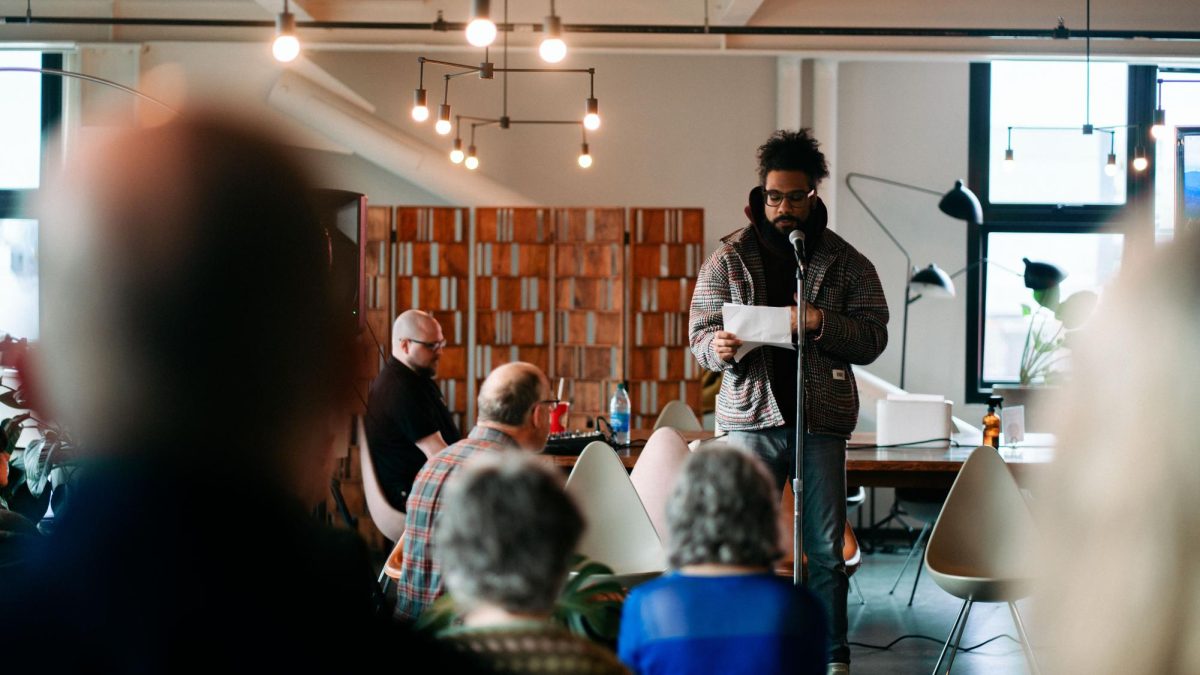


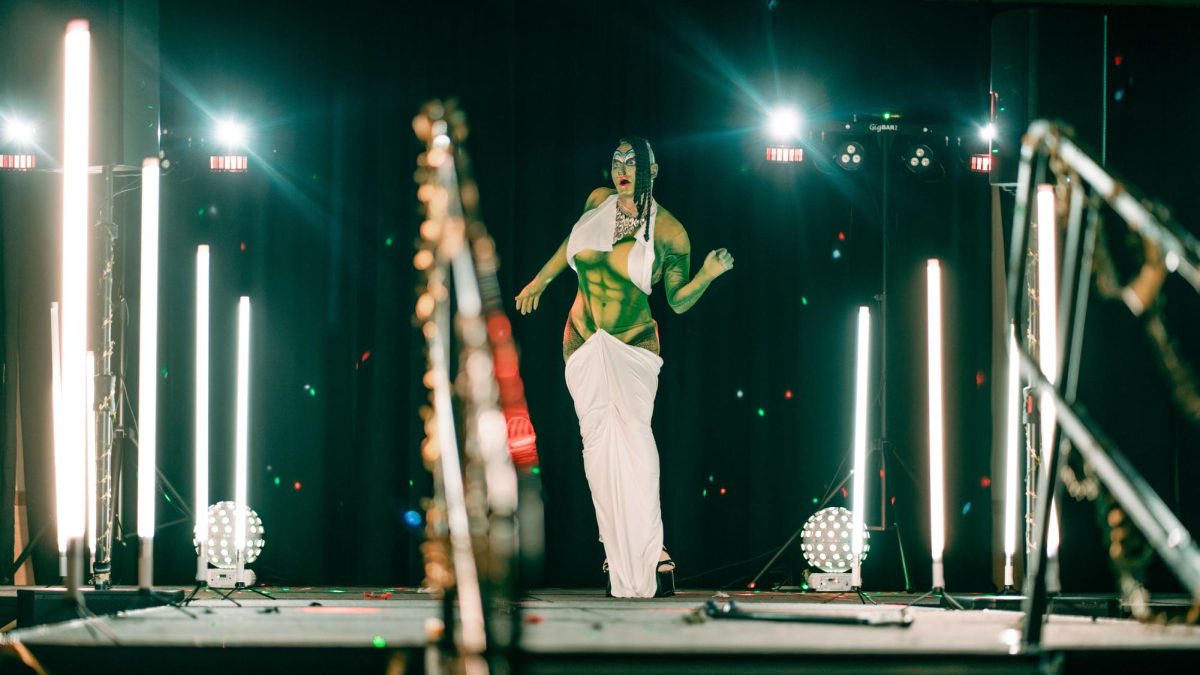

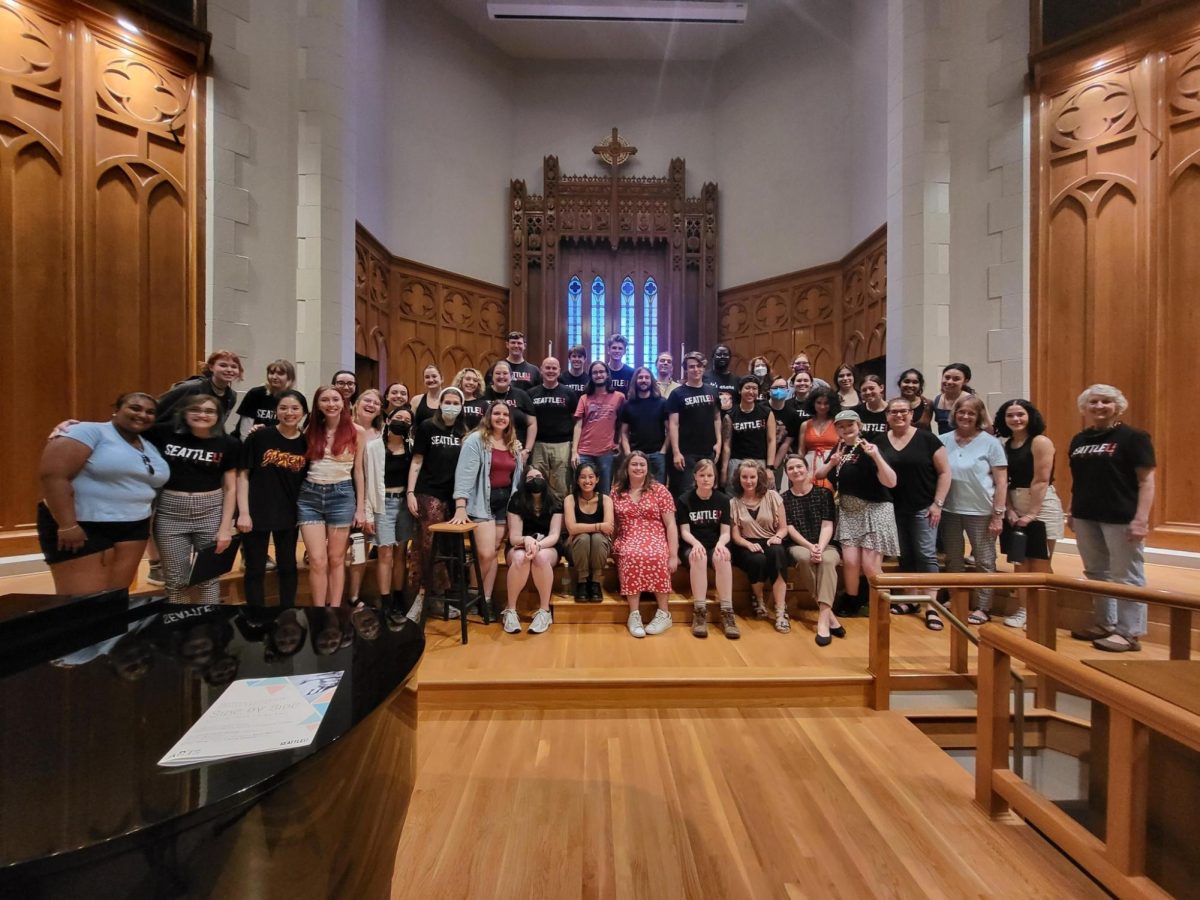
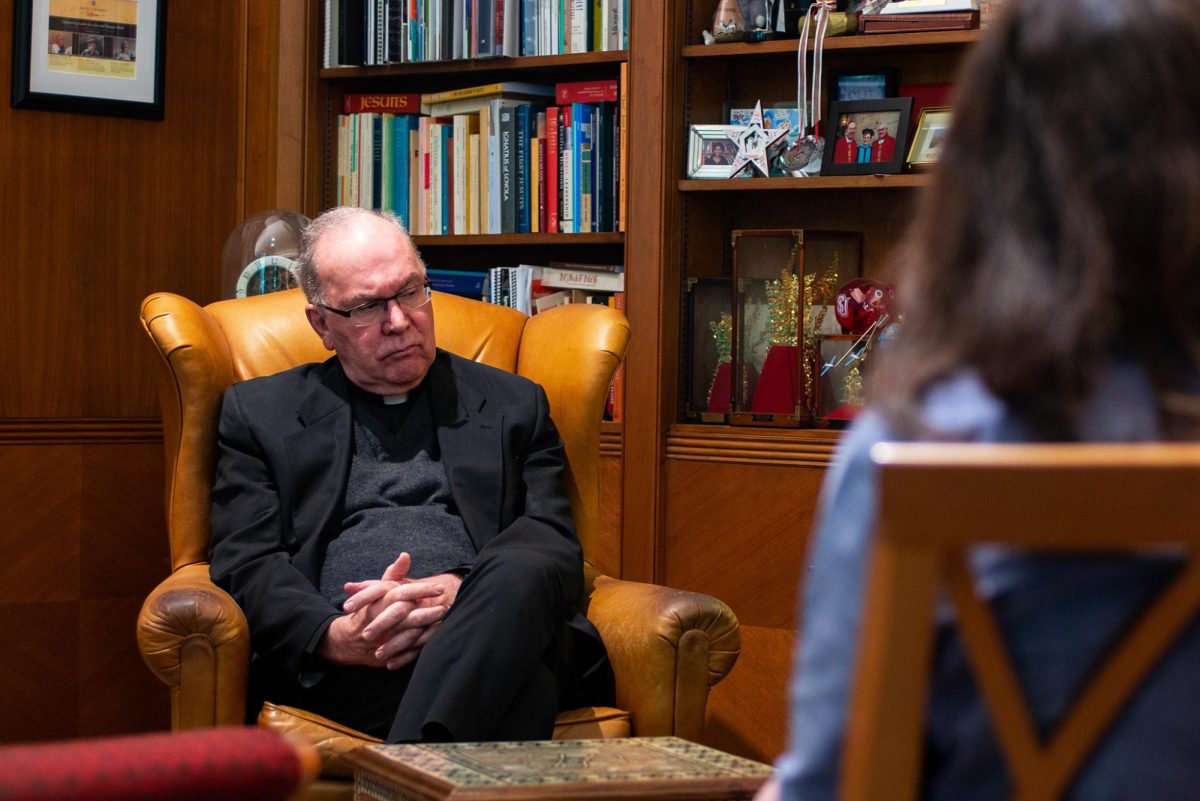

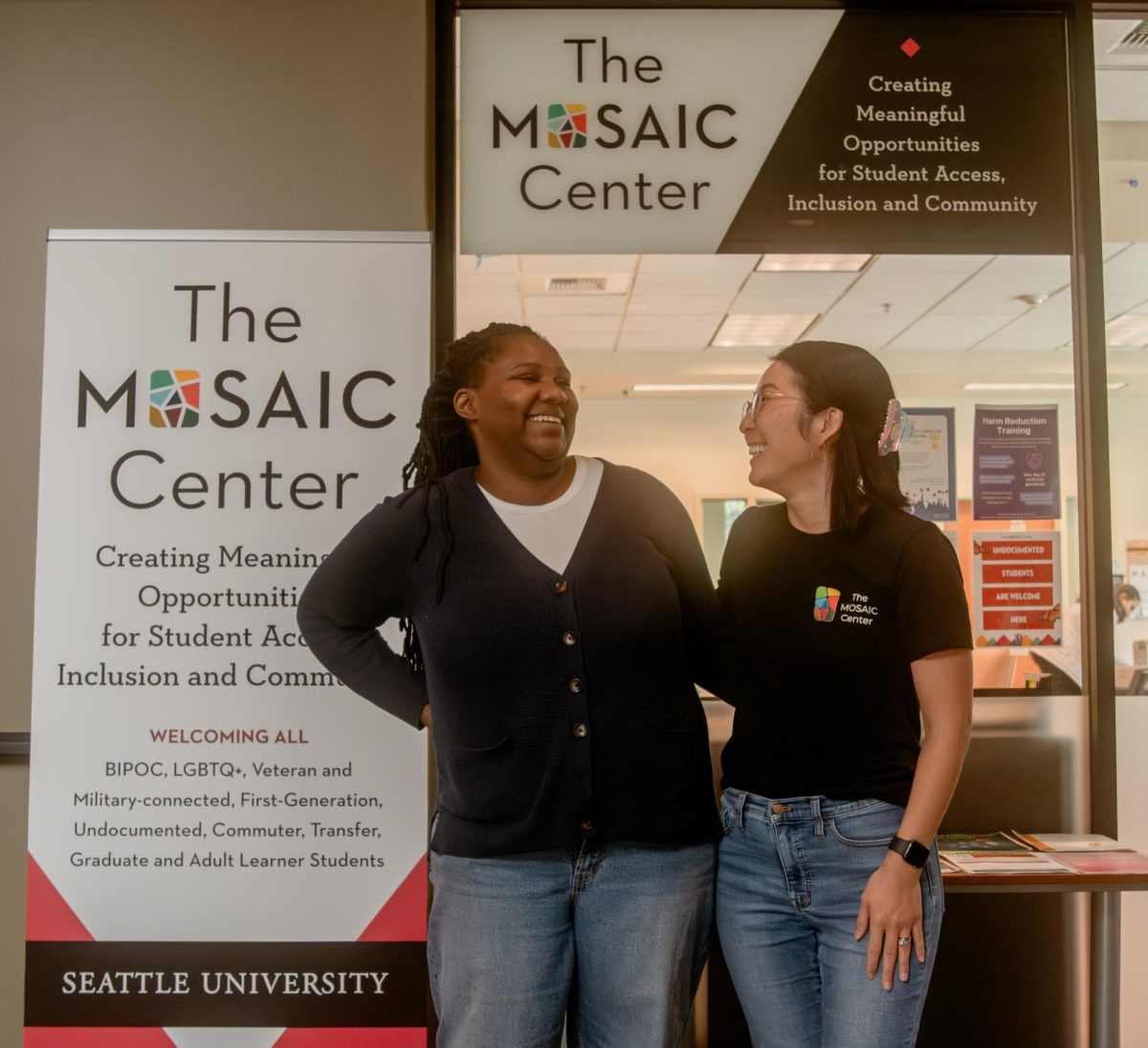
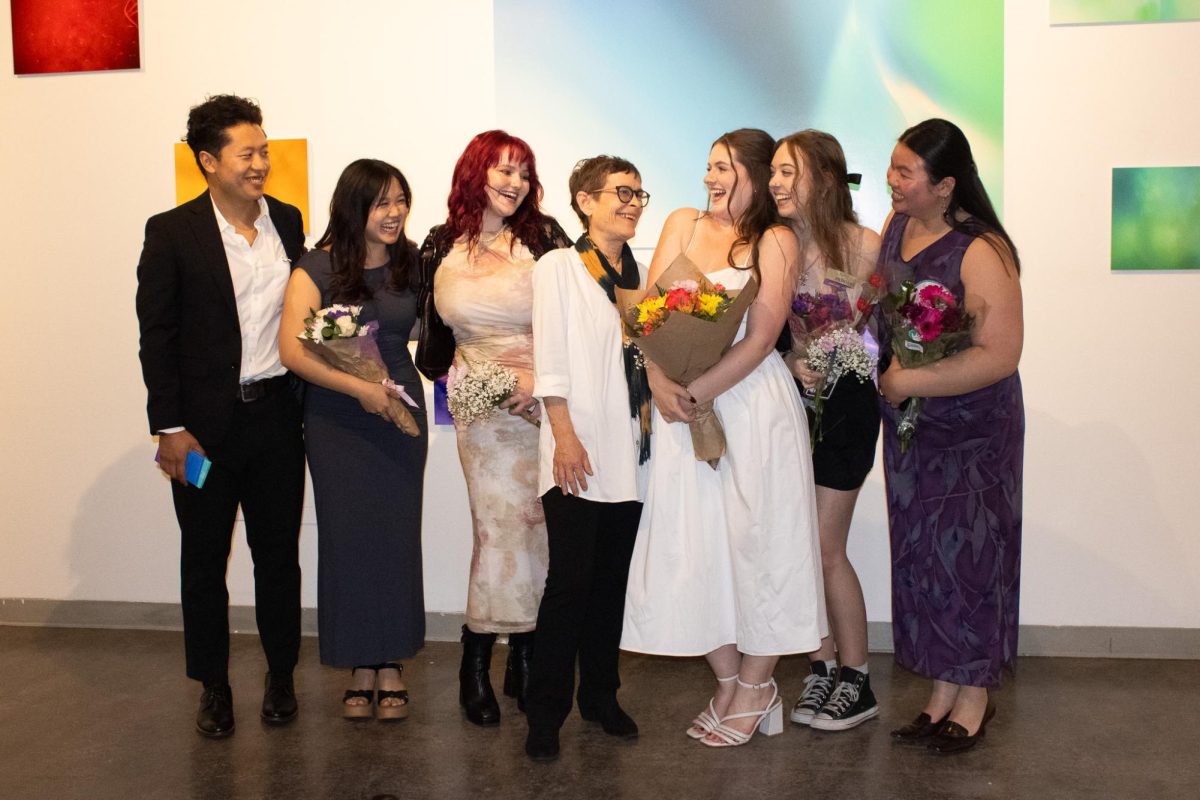
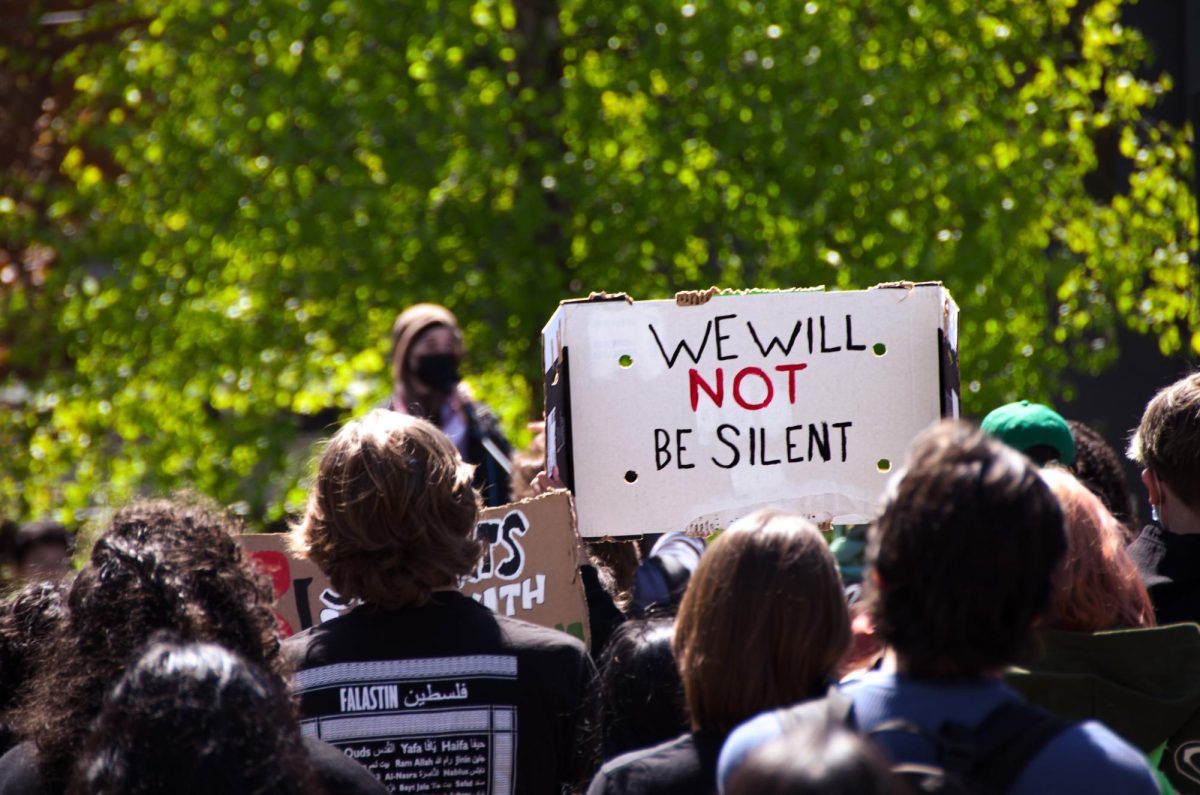
Paige Reischl
Apr 19, 2024 at 2:42 pm
What a well-written, beautiful piece, Chloe! You captured Pongo and their work so perfectly. And lovely photos of the night, Sean. Great work.
shashikant vithal jadhav
Apr 18, 2024 at 12:49 pm
‘ When people see my self-portrait, I think they will say,
this is inspiring, because they may have gone through it.’